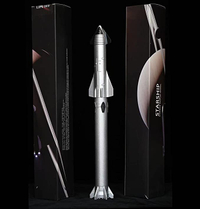SpaceX fuels up massive Starship megarocket in test for 3rd launch (photos)
SpaceX's Starship Flight 3 launch could occur soon, Elon Musk has said.
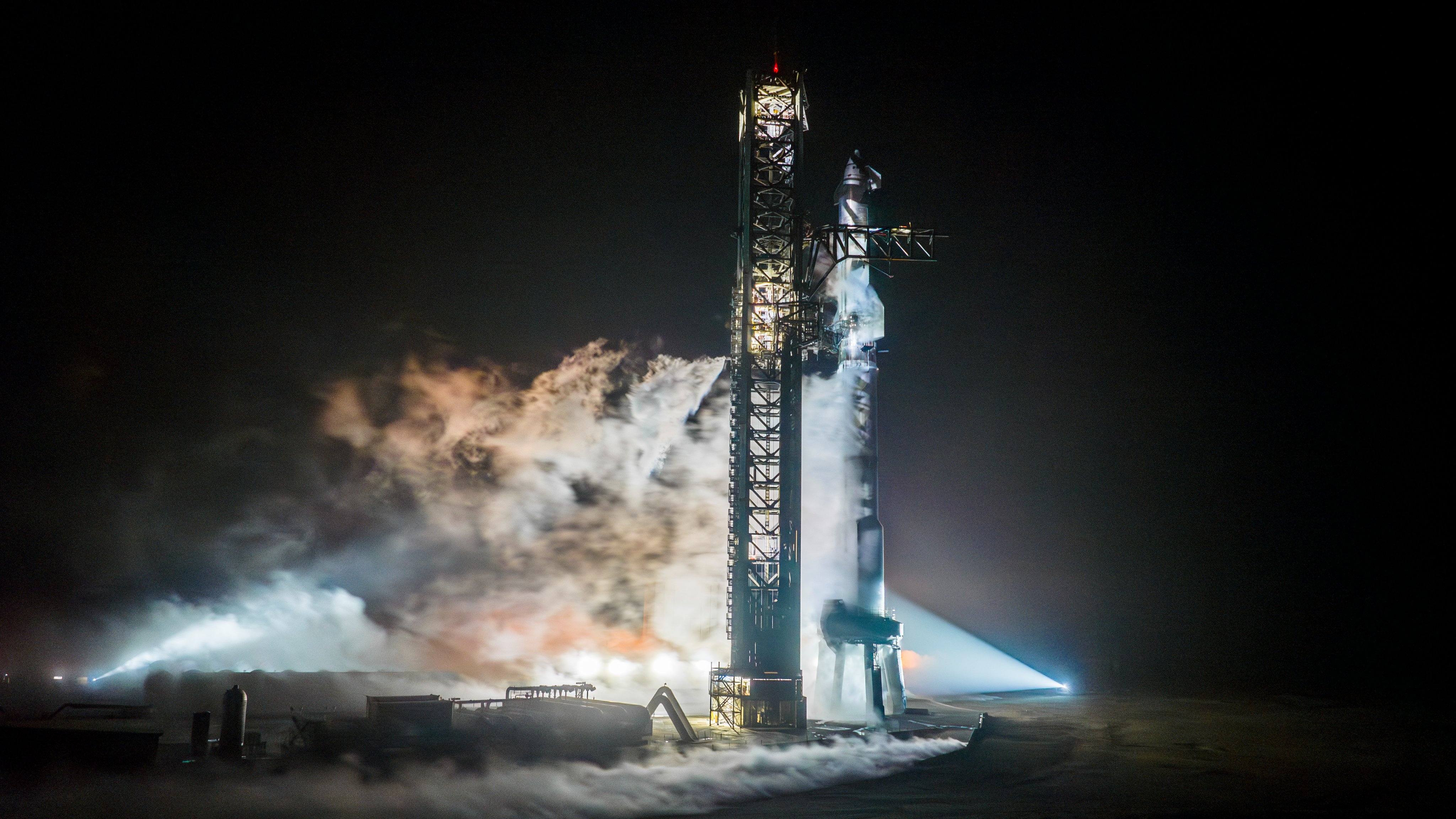
SpaceX's next Starship to fly has passed a critical fueling test, setting the stage for a highly anticipated third launch attempt of the world's biggest rocket.
The gleaming, stainless-steel Starship rocket and its Super Heavy booster, which together stand 400 feet tall (122 meters), were filled with more than 10 million pounds of liquid methane and liquid oxygen propellant during the recent launch dress rehearsal, which was performed at SpaceX's Starbase facility near Boca Chica Beach in southern Texas.
"Starship Flight 3 preparing for launch," SpaceX CEO Elon Musk wrote in a post on X (formerly Twitter), sharing SpaceX's photos of the fueling test on March 4. SpaceX shared the series of stunning photos of the fueling test in a separate X post.
Related: SpaceX could launch Starship again 'in about 3 weeks,' Elon Musk says
Starship Die Cast Rocket Model Was $69.99 Now $47.99 at Amazon.
If you can't see SpaceX's Starship in person, you can score a model of your own. Standing at 13.77 inches (35 cm), this is a 1:375 ratio of SpaceX's Starship as a desktop model. The materials here are alloy steel and it weighs just 225g.
Note: Stock is low so you'll have to act quickly to get this.
SpaceX's Starship and Super Heavy booster are designed to be the world's most powerful rocket and fully reusable, capable of hauling up to 165 tons (150 metric tons) into orbit. NASA has picked Starship to eventually land its next astronauts on the moon as the Artemis 3 lunar lander in 2026. But first, SpaceX has to successfully launch a Starship on at least a near-orbital flight, something its first two test flights, in April and November of 2023, failed to do.
In a recent interview, Elon Musk said SpaceX's third Starship test flight could launch in early March, but the company is still awaiting a license from the Federal Aviation Administration (FAA) for the upcoming flight.
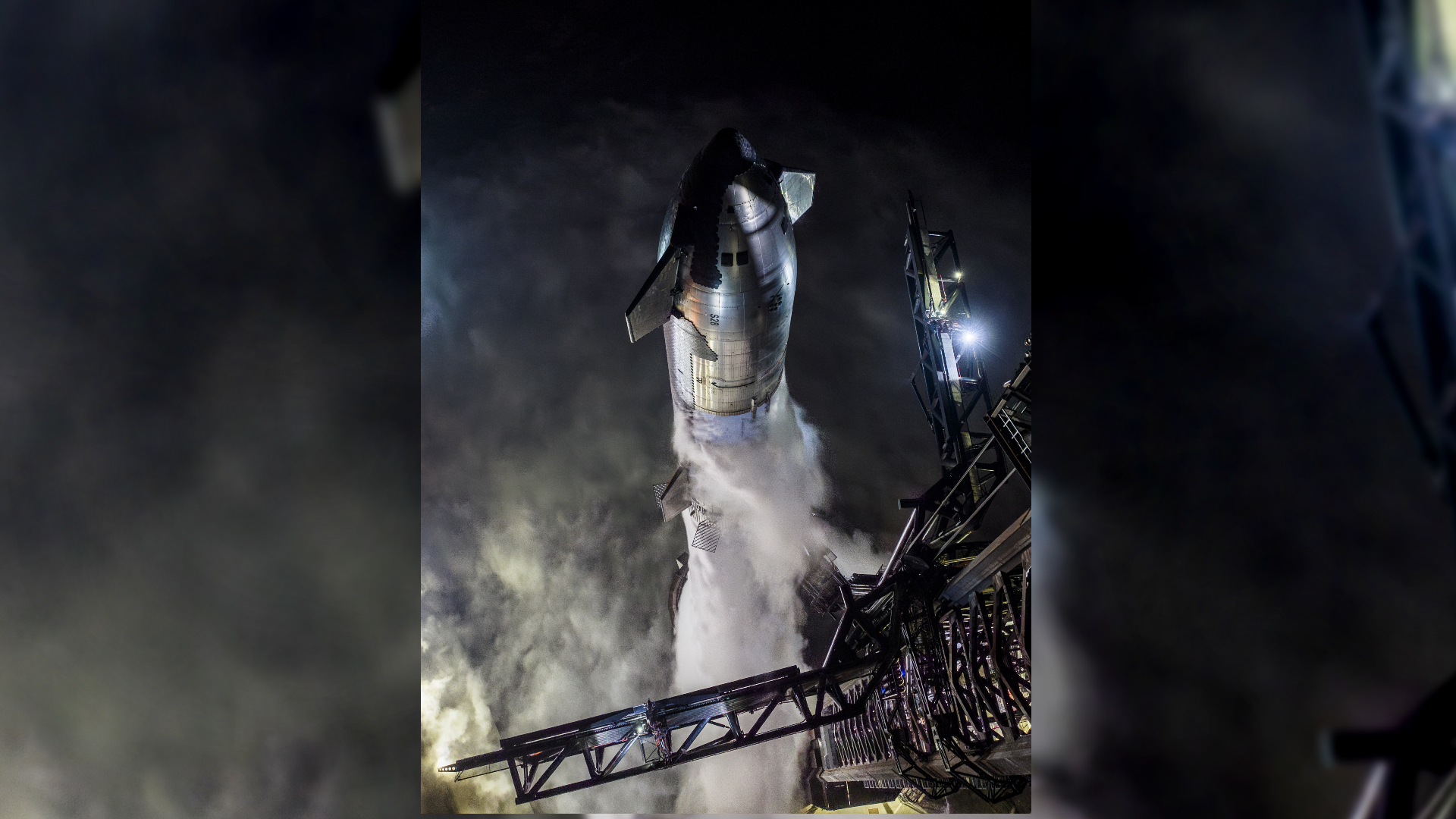
Last week, FAA officials closed a mishap investigation into SpaceX's Starship Flight 2 test, which launched a Starship and Super Heavy booster on Nov. 18. That mission ended in two explosions, first of the Super Heavy booster 3.5 minutes after liftoff and then of the Starship vehicle itself eight minutes into the flight, at a maximum altitude of 91 miles (148 kilometers).
Get the Space.com Newsletter
Breaking space news, the latest updates on rocket launches, skywatching events and more!
The FAA investigation identified 17 corrective actions for SpaceX to tackle before its next Starship launch. Those actions include 10 fixes on the 165-foot-tall (50 m) Starship vehicle and seven on the Super Heavy booster.
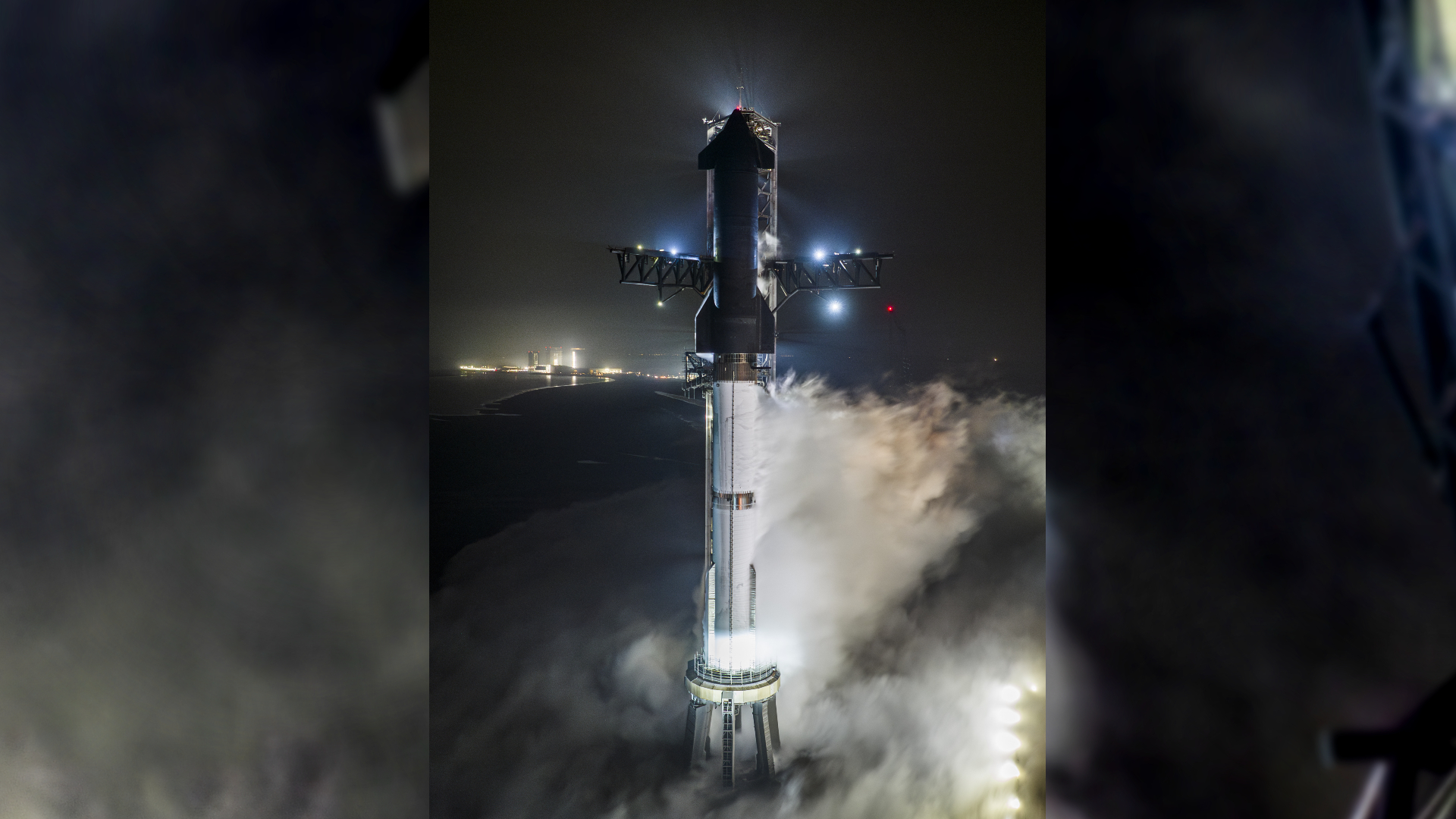
In a statement released on Feb. 26, SpaceX wrote that the Flight 2 Super Heavy booster exploded over the Gulf of Mexico after one of its 33 Raptor engines "failed energetically" after stage separation, likely due to a blocked filter in an liquid oxygen line, leading to a cascade failure.
"SpaceX has since implemented hardware changes inside future booster oxidizer tanks to improve propellant filtration capabilities and refined operations to increase reliability," SpaceX wrote in the statement.
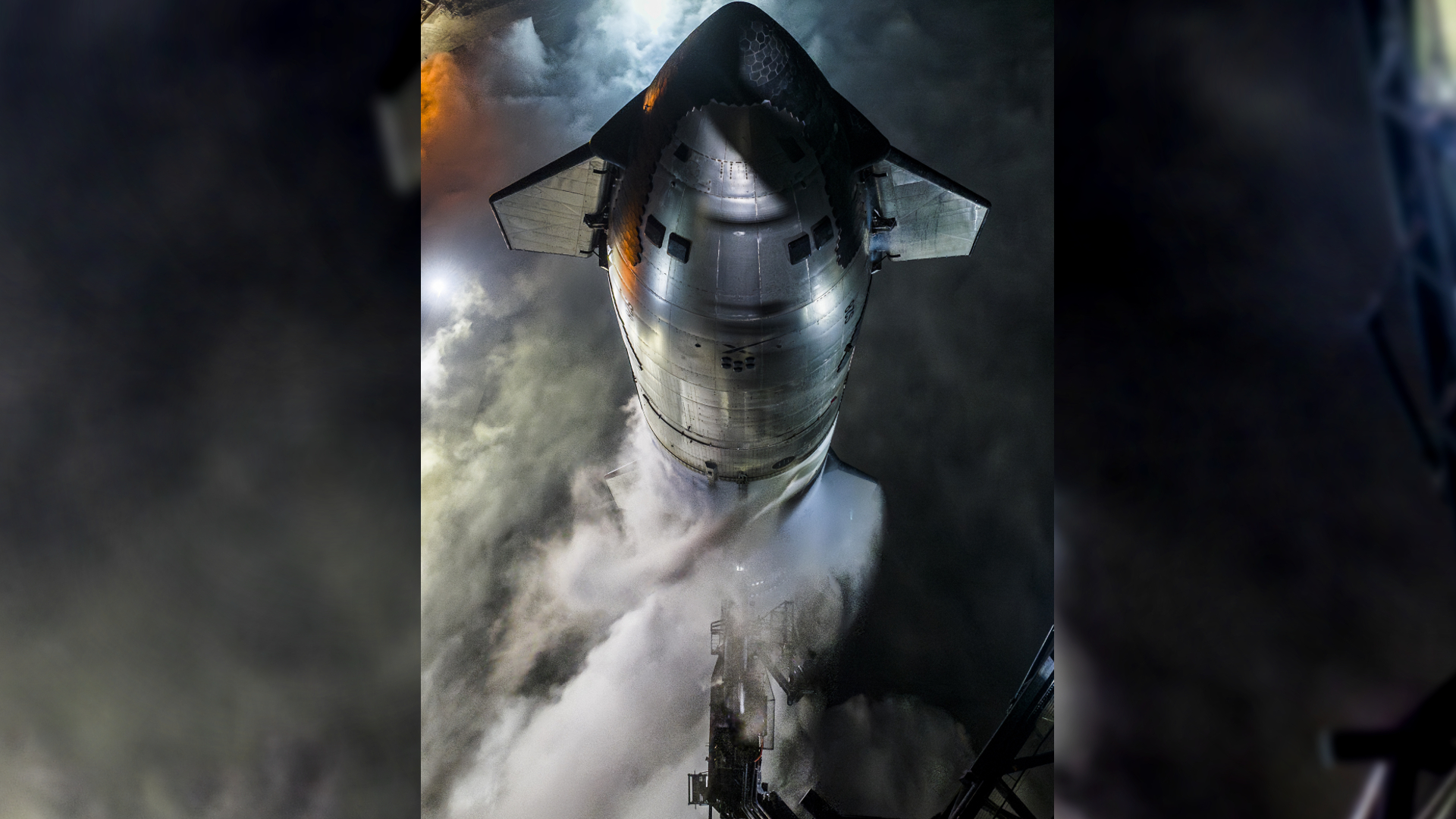
The Flight 2 Starship vehicle, meanwhile, likely failed after a leak in its aft section occurred during a planned venting of liquid oxygen, which led to a "combustion event and subsequent fires that led to a loss of communication between the spacecraft’s flight computers."
"SpaceX has implemented hardware changes on upcoming Starship vehicles to improve leak reduction, fire protection, and refined operations associated with the propellant vent to increase reliability," SpaceX wrote in its statement. "The previously planned move from a hydraulic steering system for the vehicle's Raptor engines to an entirely electric system also removes potential sources of flammability."
SpaceX rolled its Flight 3 Starship and Super Heavy booster vehicles out to its Starbase launch pad separately in early February. The company attached Starship atop the Super Heavy booster in a stacked configuration for flight on Feb. 13.
Join our Space Forums to keep talking space on the latest missions, night sky and more! And if you have a news tip, correction or comment, let us know at: community@space.com.

Tariq is the Editor-in-Chief of Space.com and joined the team in 2001, first as an intern and staff writer, and later as an editor. He covers human spaceflight, exploration and space science, as well as skywatching and entertainment. He became Space.com's Managing Editor in 2009 and Editor-in-Chief in 2019. Before joining Space.com, Tariq was a staff reporter for The Los Angeles Times covering education and city beats in La Habra, Fullerton and Huntington Beach. In October 2022, Tariq received the Harry Kolcum Award for excellence in space reporting from the National Space Club Florida Committee. He is also an Eagle Scout (yes, he has the Space Exploration merit badge) and went to Space Camp four times as a kid and a fifth time as an adult. He has journalism degrees from the University of Southern California and New York University. You can find Tariq at Space.com and as the co-host to the This Week In Space podcast with space historian Rod Pyle on the TWiT network. To see his latest project, you can follow Tariq on Twitter @tariqjmalik.
